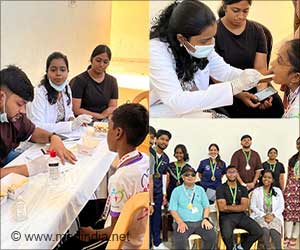Human-to-human organ transplantation saves and enhances the lives of a number of patients suffering from many forms of end-stage organ failure. Today, transplantation is the leading form of treatment for several debilitating diseases.
Graft-versus-host disease occurs when white blood cells from the donor attack tissues of the recipient. It is a very serious complication after stem cell transplantation from related or unrelated donors and may represent a cause of death in 30 to 50 percent of patients.Graft-versus-host disease is a complication of allogeneic hematopoietic cell transplantation, which results from recognition of recipient antigens by immune T cells from the donor.
Two papers published this week investigate how graft versus host disease might be predicted after hematopoietic cell transplantation.
In the first paper “Prediction of Graft-Versus-Host Disease by Gene-Expression Profiling of Donors” Claude Perreault and colleagues from the University of Montreal tested whether some donors may react more strongly against recipient cells than others. Using microarrays, they measured the gene-expression profiles of CD4+ and CD8+ T cells from 50 donors and were able to show that donor gene-expression profile in these cells had a strong influence on the occurrence of graft-versus-host disease in the recipient.
Source-Eurekalert
PRI





